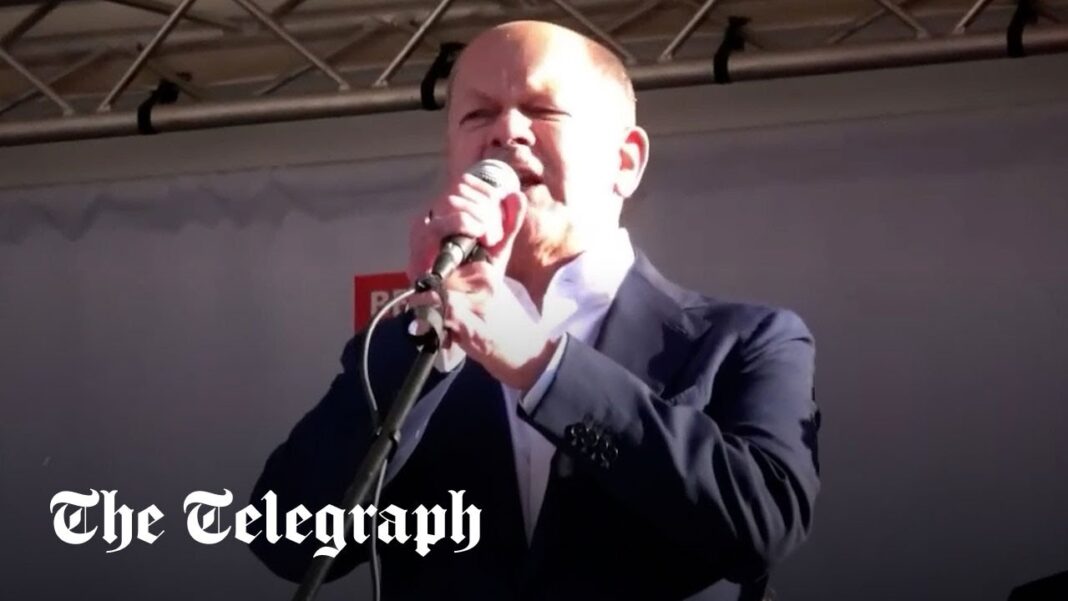Foreign Affairs warned earlier this month that an emboldened and remilitarized Germany could pose another challenge to European stability. They’re convinced that former Chancellor Olaf Scholz’s “Zeitenwende”, or historic turning point, “is real this time” in the sense that his successor Friedrich Merz now has the parliamentary and popular support to transform their country into a Great Power. While this would allegedly benefit Europe and Ukraine, it wouldn’t be without three serious risks.
According to the article’s two authors, these entail: Russia waging more hybrid war on Germany; Germany’s rise possibly provoking more nationalism in surrounding countries; and this potentially leading to an explosion of ultra-nationalism in Germany. The catalyst for all of this is the US’ gradual disengagement from NATO brought about by the Trump Administration’s reprioritization of the Asia-Pacific. As American influence recedes, it’ll create political and security voids that others compete to fill.
To be sure, the article itself is more about promoting the alleged advantages of Germany’s delayed implementation of Scholz’s “Zeitenwende”, which the authors praise as long-overdue and a natural response to the aforesaid catalyst seeing as how Germany is already the EU’s de facto leader. At the same time, touching upon the risks bolsters their credibility in some readers’ eyes, enables them to subtly throw shade on Trump, and presents the authors as prescient in case any of the above occurs.
Beginning with the first of the three, it’s predicable that Germany and Russia would carry out more intelligence operations against one another if the first plays the continent’s leading role in containing the second, which the latter would of course consider to be a latent threat for obvious historical reasons. The article omits any mention of the way in which his newfound German role would harm Russian interests and misportrays whatever Moscow’s response may be as unprovoked aggression.
They’re fairer with regard to the second risk of surrounding countries becoming more nationalistic as a reaction to an emboldened and remilitarized Germany but don’t elaborate. Poland is probably the most likely candidate though since such sentiments are already rising in society. This is a reaction to the ruling liberal-globalist coalition in general, its perceived subservience to Germany, and concerns that a possibly AfD-led Germany might try to reclaim what Poland considers to be its “Recovered Territories”.
The last risk builds upon that the authors expressed as the worst-case scenario of “a German military first strengthened by politically centrist, pro-European governments [falling] into the hands of leaders willing to relitigate Germany’s borders or to forgo EU-style deliberation in favor of military blackmail.” It’s this potential consequence that’s the most important to evaluate since the first two are expected to be enduring characteristics of this new geopolitical era in Europe while the final one is uncertain.
The outcome of Poland’s presidential election next month is expected to greatly determine the future dynamics of Polish-German relations. If the outgoing conservative is replaced by the liberal candidate, then Poland will probably either subordinate itself even more to Germany, rely on France to balance it and the US, or pivot towards France. A victory by the conservative or populist candidates, however, would lessen dependence on Germany by either balancing it with France or reprioritizing the US.
France is foreseen as figuring more prominently in Polish foreign policy either way due to their historical partnership since the Napoleonic era as well as their shared contemporary concerns about the threat that an emboldened and remilitarized Germany could pose to them. French in general are less worried about Germany relitigating their borders than some Poles are and are much more anxious about losing their chance to lead Europe either in whole or in part after the Ukrainian Conflict finally ends.
France, Germany, and Poland are competing with one another in this respect, with the most likely outcomes either being German hegemony via the “Zeitenwende” vision, France and Poland jointly thwarting this in Central & Eastern Europe (CEE), or a revived “Weimar Triangle” for tripartite rule over Europe. So long as the EU’s free flow of people and capital is retained, which of course can’t be taken for granted but is likely, then the odds of an AfD-led Germany relitigating its border with Poland are low.
That’s because like-minded Germans could simply buy land in Poland and move there if they wanted to, albeit while being subject to Polish laws, which aren’t different in any meaningful sense than German ones for all intents and purposes with respect to their daily lives. Additionally, while Germany does indeed plan to undergo an unprecedented military buildup, Poland is already in the midst of its own buildup and a more successful at that after having just become NATO’s third-largest military last summer.
The US is also unlikely to completely withdraw from Poland, let alone all of CEE, so its forces will probably always remain there as a mutual deterrent against Russia and Germany. Neither have any intent to invade Poland though so this presence would mostly be symbolic and for the purpose of psychologically reassuring the historically traumatized Polish population of their safety. In any case, the point is that the worst-case scenario that the authors touched upon is very unlikely to materialize.
To review, this is because: Poland will either subordinate itself to Germany after the next elections or rely more on France to balance it (if not reprioritize the US over both); the EU’s free flow of people and capital will likely remain at least for some time; and the US won’t abandon CEE. These will accordingly: appease or balance a possibly ultra-nationalist (ex: AfD-led) Germany; ditto; and deter any potential German territorial revisionism (whether via legal or military means).
Drawing to a close, it can therefore be concluded that the new order taking shape in Europe likely won’t lead to a restoration of interwar risks like Foreign Affairs warned is the worst-case scenario, but to the creation of spheres of influence without military tensions. Whether Poland stands strongly on its own, partners with France, or subordinates itself to Germany, no border changes are expected in either the western or eastern direction, with all forms of future German-Polish competition remaining manageable.








